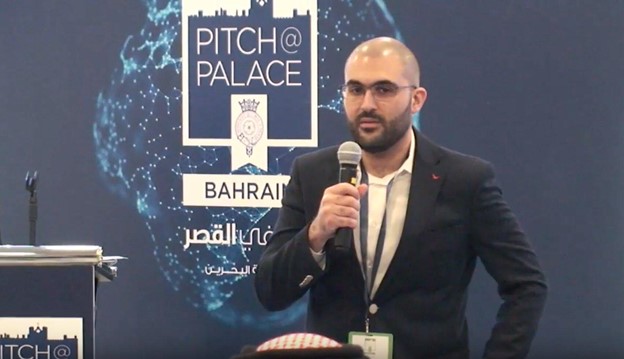
Capital from MENA Sovereign Wealth Funds has been the bedrock of Silicon Valley for decades, yet the last decade has seen the emergence of new tech hubs in the United States without those pre-existing relationships.
Seeking to empower these emerging tech ventures with the most viable, international resources, Abdulaziz Hayat, an expert in global finance and entrepreneurship, is strengthening US-MENA collaborations.
A Master of Liberal Arts in Finance from the revered Harvard University, Abdulaziz Hayat, hailing from Kuwait, has been working in the sphere of international investments for years. He earned his undergraduate degree in Economics from the University of San Diego, California.
Uncovering Hayat's Entrepreneurial Experience
After completing graduate studies at Harvard, Abdulaziz served as an intern at G2 Capital Advisors in Boston where he supported the logistics, industrial, and aerospace & defense investment banking teams. He was then a Senior Analyst at NBK Capital in Kuwait, where he served on both debt and equity capital markets investment banking teams, having worked on both healthcare M&A and Kuwait's inaugural Global Medium Term Note Programme.
After leaving investment banking, he headed VC investment operations at Faith Capital, where he invested and managed an early stage portfolio. At the time, he was the highest-ranking full-time employee at the organization. His expertise and keenness in delivering the most efficient strategies led him to act as a board member to various portfolio companies on product, fundraising, investments, and other matters pertaining to post-investment value addition.
Over the years, Hayat has structured capital for multiple startups. Drawing insights from his stellar experience, he discusses the impacts of consistently shifting expectations, externalities, and the MENA-US relationships harvesting bold challenges for Silicon Valley and beyond.
Effects of the Altering Landscapes
Even with the recent overhaul of the American political fabric, Hayat observes that capital inflows to the US remain high under Biden. "Relations have been strong across multiple administrations, but they increased significantly under the Trump presidency and continue to be high in the current atmosphere", he continues. The latter is due to a search for equity returns given economic slowdowns caused by oil downturns and COVID-19, mainly in the Gulf states.
Addressing the raging pandemic that continues to rock the world, Hayat contrasts its effects on Silicon Valley, revealing that 2020 was a peak fundraising cycle for Silicon Valley. He admits that due to heightened uncertainty, fund flows and M&A stopped in the early days of the pandemic before market expectations normalized.
Gulf Capital Backing New US Startups To Challenge Silicon Valley
Los Angeles, Boston, and New York are becoming America's leading emerging ecosystems for new ventures of all sectors. Abdulaziz notices growth in accelerators and seed funds outside the realms of Silicon Valley, particularly in New York City. The new venture activities in the area have produced a few unicorns in the past decade, with many more likely in the next decade. "NYC seems to be leading the pack outside of the Bay Area", he extends his observation. However, interestingly, Austin and Miami have exceeded all foreseen expectations, even cited as the 'unexpected heroes of the pandemic'.
Abdulaziz Hayat is zooming in his focus in these regions, partly because of the extraordinary dynamics at play. He is looking for new startups and managers to back in Miami as numerous funds have migrated to the region, most notably following Founders Fund and Keith Rabois.
Moreover, Abdulaziz believes that the $100 million allocation announcement for Miami by SoftBank, the world's largest technology investor headquartered in Japan, will also serve as a catalyst to the growth of the ecosystem. SoftBank itself is backed heavily by the Saudi and UAE government investment offices.
"If we can be a part of the emergence of a new New York, or even a new Boston, in the US startup ecosystem, that's an opportunity we cannot miss", says Hayat. His work experience in the US and the Middle East enables him to efficiently place and structure capital. "The reasons to back some of the newer tech hubs closely mirrors the decision process used to invest in Silicon Valley", he explains. Investors back ecosystems with a high graduation rate of new engineers, accommodative local governments, a concentration of young professionals, acceptable costs of living, and a flourishing domestic market. "Links to international markets of interest, like Miami's line into Latin America, is a new factor to consider", Hayat shares.
Though established funds paying attention to new regions helps bring more capital to emerging tech hubs, new cohorts of investors are creating their own networks. Hayat believes it is an excellent opportunity to become a part of the development of nascent ecosystems.
Hence, Hayat seeks to bring both sovereign and private capital to these new rising centers within the US, which are expected to produce a range of world-class tech companies. "Unicorns will no longer see a Bay Area presence as essential. New York and LA can both be viable headquarters", he reckons. These alternative cities continue to challenge Silicon Valley for the top spot and will likely need foreign investors to achieve that dominance. Abdulaziz seeks to bridge this gap by making introductions and leading investment activities.
* This is a contributed article and this content does not necessarily represent the views of techtimes.com





